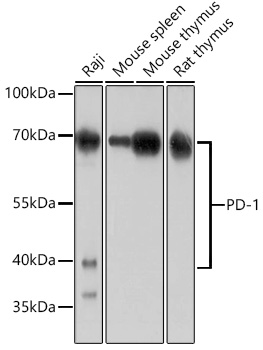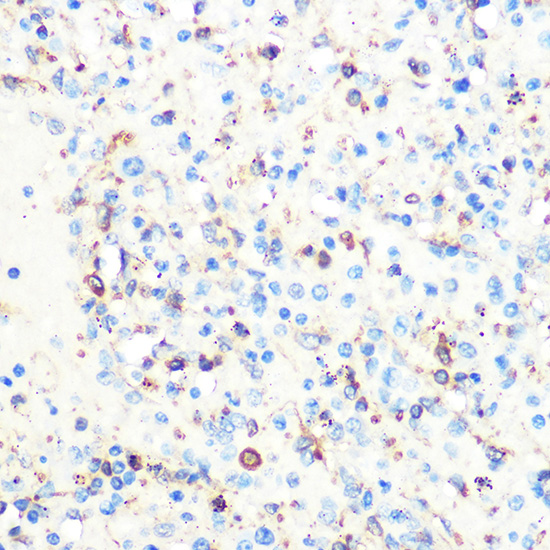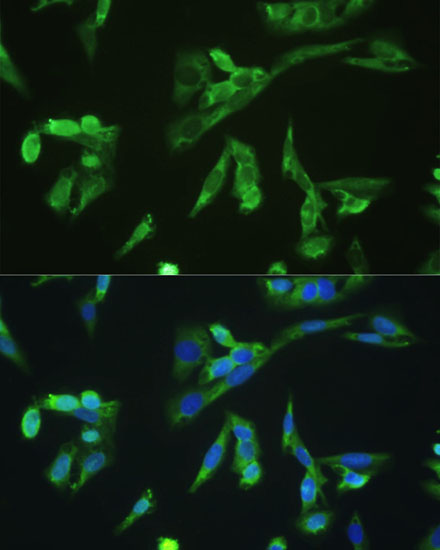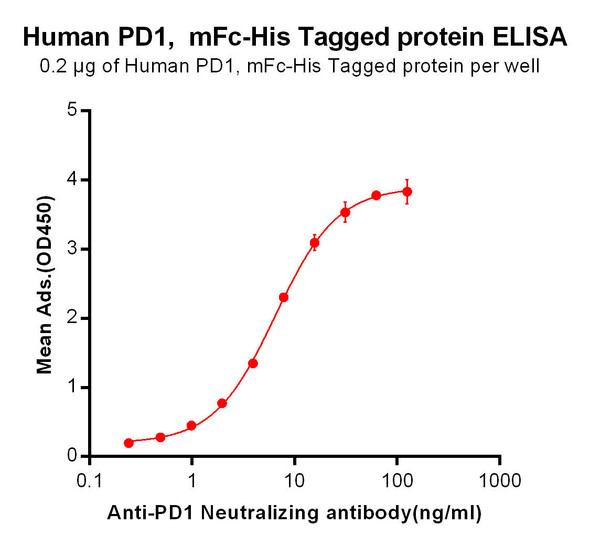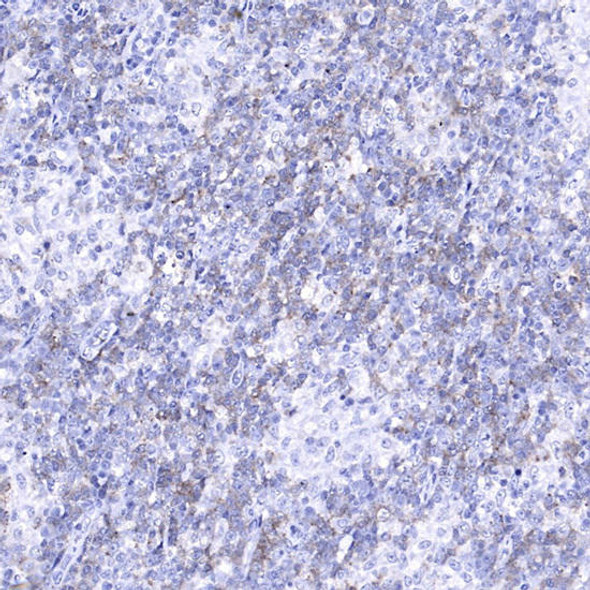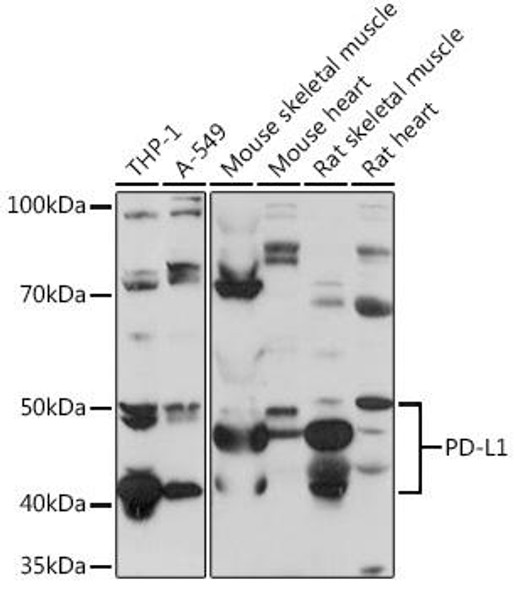Immunology Antibodies 1
Anti-PD-1 Antibody (CAB11973)
- SKU:
- CAB11973
- Product Type:
- Antibody
- Reactivity:
- Human
- Reactivity:
- Mouse
- Reactivity:
- Rat
- Host Species:
- Rabbit
- Isotype:
- IgG
- Antibody Type:
- Polyclonal Antibody
- Research Area:
- Immunology
Description
| Antibody Name: | Anti-PD-1 Antibody |
| Antibody SKU: | CAB11973 |
| Antibody Size: | 20uL, 50uL, 100uL |
| Application: | WB IHC IF |
| Reactivity: | Human, Mouse, Rat |
| Host Species: | Rabbit |
| Immunogen: | A synthetic peptide corresponding to a sequence within amino acids 1-100 of human PD-1 (NP_005009.2). |
| Application: | WB IHC IF |
| Recommended Dilution: | WB 1:500 - 1:2000 IHC 1:50 - 1:200 IF 1:50 - 1:200 |
| Reactivity: | Human, Mouse, Rat |
| Positive Samples: | Raji, Mouse spleen, Mouse thymus, Rat thymus |
| Immunogen: | A synthetic peptide corresponding to a sequence within amino acids 1-100 of human PD-1 (NP_005009.2). |
| Purification Method: | Affinity purification |
| Storage Buffer: | Store at -20'C. Avoid freeze / thaw cycles. Buffer: PBS with 0.02% sodium azide, 50% glycerol, pH7.3. |
| Isotype: | IgG |
| Sequence: | MQIP QAPW PVVW AVLQ LGWR PGWF LDSP DRPW NPPT FSPA LLVV TEGD NATF TCSF SNTS ESFV LNWY RMSP SNQT DKLA AFPE DRSQ PGQD CRFR VTQL |
| Gene ID: | 5133 |
| Uniprot: | Q15116 |
| Cellular Location: | Membrane, Single-pass type I membrane protein |
| Calculated MW: | 31kDa |
| Observed MW: | 40-70kDa |
| Synonyms: | PDCD1, CD279, PD-1, PD1, SLEB2, hPD-1, hPD-l, hSLE1 |
| Background: | This gene encodes a cell surface membrane protein of the immunoglobulin superfamily. This protein is expressed in pro-B-cells and is thought to play a role in their differentiation. In mice, expression of this gene is induced in the thymus when anti-CD3 antibodies are injected and large numbers of thymocytes undergo apoptosis. Mice deficient for this gene bred on a BALB/c background developed dilated cardiomyopathy and died from congestive heart failure. These studies suggest that this gene product may also be important in T cell function and contribute to the prevention of autoimmune diseases. |
| UniProt Protein Function: | Inhibitory cell surface receptor involved in the regulation of T-cell function during immunity and tolerance. Upon ligand binding, inhibits T-cell effector functions in an antigen-specific manner. Possible cell death inducer, in association with other factors. |
| NCBI Summary: | This gene encodes a cell surface membrane protein of the immunoglobulin superfamily. This protein is expressed in pro-B-cells and is thought to play a role in their differentiation. In mice, expression of this gene is induced in the thymus when anti-CD3 antibodies are injected and large numbers of thymocytes undergo apoptosis. Mice deficient for this gene bred on a BALB/c background developed dilated cardiomyopathy and died from congestive heart failure. These studies suggest that this gene product may also be important in T cell function and contribute to the prevention of autoimmune diseases. [provided by RefSeq, Jul 2008] |
| UniProt Code: | Q15116 |
| NCBI GenInfo Identifier: | 145559515 |
| NCBI Gene ID: | 5133 |
| NCBI Accession: | Q15116.3 |
| UniProt Secondary Accession: | Q15116,Q02242, |
| UniProt Related Accession: | Q15116 |
| Molecular Weight: | |
| NCBI Full Name: | Programmed cell death protein 1 |
| NCBI Synonym Full Names: | programmed cell death 1 |
| NCBI Official Symbol: | PDCD1 |
| NCBI Official Synonym Symbols: | PD1; PD-1; CD279; SLEB2; hPD-1; hPD-l; hSLE1 |
| NCBI Protein Information: | programmed cell death protein 1 |
| UniProt Protein Name: | Programmed cell death protein 1 |
| UniProt Synonym Protein Names: | CD_antigen: CD279 |
| UniProt Gene Name: | PDCD1 |
View AllClose


